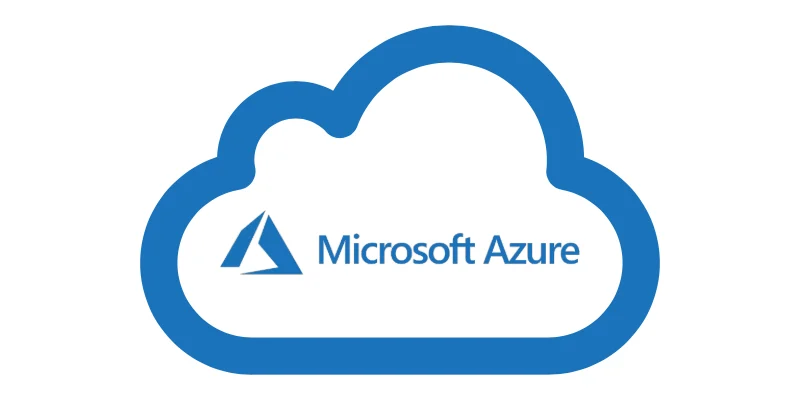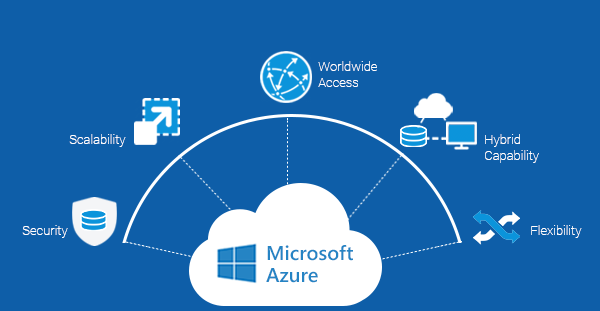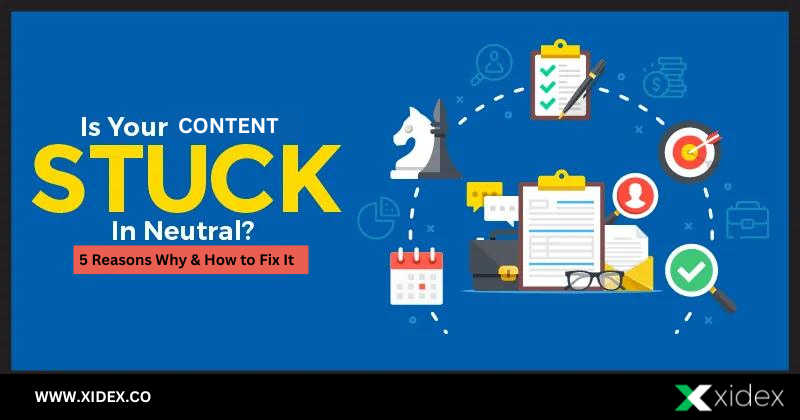Microsoft Azure is a cloud computing platform and set of services offered by Microsoft. It provides a wide range of cloud-based services, including virtual machines, storage, databases, networking, analytics, machine learning, artificial intelligence, and more.
Azure allows businesses and individuals to build, deploy, and manage applications and services in the cloud, with the flexibility to choose from a variety of programming languages, frameworks, and tools. It also offers a range of deployment options, including public, private, and hybrid cloud, and provides a high level of security and compliance with various industry standards.
Azure is used by organizations of all sizes and across various industries, including healthcare, finance, education, government, and more. It is designed to provide scalable, reliable, and cost-effective cloud computing solutions for businesses and developers around the world.

When a user wants to use Azure, they can sign up for an account and then select the specific services they need. For example, they might choose to use Azure Virtual Machines to create a virtual server, or Azure Storage to store data in the cloud.
Once the user has selected the services they need, they can create and manage them through the Azure portal or via command-line tools or APIs. They can configure the services according to their specific needs, such as specifying the amount of computing power or storage space required, setting up access controls and security measures, and defining how the services should interact with other components of their application.
One of the key benefits of Azure is its ability to scale up or down dynamically based on demand. For example, if a business experiences a sudden surge in traffic to their website or application, Azure can automatically provision additional computing resources to handle the increased load, and then scale back down when demand returns to normal levels.
Microsoft Azure provides a flexible and scalable platform for building, deploying, and managing applications and services in the cloud, with a wide range of tools and services to meet the needs of businesses and developers of all types and sizes.
How does Microsoft Azure work?
Microsoft Azure works by providing a set of cloud-based services that enable businesses and individuals to build, deploy, and manage applications and services in the cloud. These services are hosted on Microsoft’s global network of data centers, which are connected by high-speed networking infrastructure.
When a user wants to use Azure, they can sign up for an account and then select the specific services they need. For example, they might choose to use Azure Virtual Machines to create a virtual server, or Azure Storage to store data in the cloud.
Once the user has selected the services they need, they can create and manage them through the Azure portal or via command-line tools or APIs. They can configure the services according to their specific needs, such as specifying the amount of computing power or storage space required, setting up access controls and security measures, and defining how the services should interact with other components of their application.
One of the key benefits of Azure is its ability to scale up or down dynamically based on demand. For example, if a business experiences a sudden surge in traffic to their website or application, Azure can automatically provision additional computing resources to handle the increased load, and then scale back down when demand returns to normal levels.
Microsoft Azure provides a flexible and scalable platform for building, deploying, and managing applications and services in the cloud, with a wide range of tools and services to meet the needs of businesses and developers of all types and sizes.

What is Microsoft Azure used for?
Microsoft Azure is used for a wide range of purposes, including:
- Hosting and running applications: Azure provides a platform for hosting and running applications in the cloud, with support for a variety of programming languages and frameworks.
- Storage and backup: Azure offers a range of storage services, including Blob Storage for unstructured data, File Storage for file-based workloads, and Disk Storage for virtual machines. Azure Backup provides backup and disaster recovery capabilities.
- Analytics and big data: Azure offers a range of analytics services, including Azure Stream Analytics, Azure Data Lake Analytics, and Azure HDInsight for big data processing.
- Machine learning and artificial intelligence: Azure offers a range of machine learning and AI services, including Azure Machine Learning, Cognitive Services, and Bot Service.
- Internet of Things (IoT): Azure offers a range of services for building and managing IoT solutions, including Azure IoT Hub, IoT Central, and IoT Edge.
- DevOps and continuous integration/continuous deployment (CI/CD): Azure provides a range of services for automating the deployment and management of applications, including Azure DevOps, Azure Container Registry, and Azure Kubernetes Service.
- Security and identity: Azure offers a range of security and identity services, including Azure Active Directory, Azure Security Center, and Azure Key Vault.
Microsoft Azure provides a comprehensive cloud computing platform with a wide range of services and tools to meet the needs of businesses and developers across a variety of industries and use cases.
Microsoft Azure products and services
Microsoft Azure offers a wide range of products and services, including:
- Compute Services: Azure Virtual Machines, Azure Virtual Machine Scale Sets, Azure Kubernetes Service, Azure Functions, Azure Batch, Azure Container Instances.
- Storage Services: Azure Blob Storage, Azure Files, Azure Queue Storage, Azure Table Storage, Azure Disk Storage, Azure Archive Storage.
- Database Services: Azure SQL Database, Azure Cosmos DB, Azure Database for MySQL, Azure Database for PostgreSQL, Azure Synapse Analytics.
- Networking Services: Azure Virtual Network, Azure Load Balancer, Azure Application Gateway, Azure Traffic Manager, Azure ExpressRoute.
- Analytics Services: Azure Stream Analytics, Azure Data Lake Analytics, Azure HDInsight, Azure Databricks, Azure Analysis Services.
- AI and Machine Learning Services: Azure Machine Learning, Azure Cognitive Services, Azure Bot Service, Azure Databricks.
- Internet of Things (IoT) Services: Azure IoT Hub, Azure IoT Central, Azure IoT Edge.
- DevOps Services: Azure DevOps, Azure Artifacts, Azure Repos, Azure Test Plans, Azure Pipelines.
- Security Services: Azure Security Center, Azure Key Vault, Azure Active Directory, Azure Sentinel.
- Management and Governance Services: Azure Monitor, Azure Resource Manager, Azure Policy, Azure Service Health, Azure Advisor.
This is just a sampling of the many products and services that Azure offers, and the platform is constantly evolving and adding new capabilities to meet the needs of its users.
Microsoft Azure Disaster Recovery (DR) and backup
- Azure Site Recovery: It is a disaster recovery solution that can help protect applications and workloads running on-premises and in Azure. It replicates VMs and physical servers to a secondary site or to Azure.
- Azure Backup: It is a cloud-based backup solution that can be used to backup on-premises and Azure workloads, including VMs, files, folders, and applications.
- Azure Storage replication: Azure Storage provides multiple replication options for data durability and high availability, including Locally-Redundant Storage (LRS), Zone-Redundant Storage (ZRS), Geo-Redundant Storage (GRS), and Read-Access Geo-Redundant Storage (RA-GRS).
- Azure Archive Storage: It provides a low-cost storage solution for data that is rarely accessed, but still needs to be retained for compliance or regulatory purposes.
- Azure Backup Server: It is a backup solution that can be used to protect on-premises workloads, including SQL Server, SharePoint, and Exchange, and can backup to Azure.
Azure provides a variety of services that can be used for disaster recovery and backup, giving businesses the ability to protect their critical workloads and data in the event of an outage or disaster.
Microsoft Azure pricing and costs
Azure offers a variety of pricing models and payment options, and the cost of using Azure can vary depending on the services and resources you use. Here are some key points to keep in mind when it comes to Azure pricing:
- Pay-as-you-go pricing: Azure offers pay-as-you-go pricing for most services, which means you only pay for the resources you use and you can scale up or down as needed.
- Free services and trials: Azure provides some services for free, such as Azure Functions, Azure App Service, and Azure Cosmos DB, and also offers free trials for many of its services.
- Discounts and savings: Azure offers discounts for certain services if you commit to using them for a longer period of time, such as reserved instances, and also provides savings through various programs such as Azure Hybrid Benefit, Azure Spot Virtual Machines, and Azure Cost Management.
- Resource-based pricing: Some services, such as Azure Virtual Machines, Azure SQL Database, and Azure Storage, are priced based on the resources you use, such as the number of cores, memory, and storage.
- Consumption-based pricing: Some services, such as Azure Functions and Azure Logic Apps, are priced based on usage, such as the number of executions, messages processed, or API calls.
- Region-based pricing: Azure pricing can vary by region, with some regions being more expensive than others.
It’s important to understand the pricing model and cost structure of the Azure services you plan to use, and to monitor your usage and costs to ensure you stay within budget. Azure provides tools such as Azure Cost Management and Azure Advisor to help you monitor and optimize your costs.
Also Read : Top 12 Things which you need to know about Kubernetes ?
Microsoft Azure Compute Services
Azure Compute Services are a collection of services that allow you to create and run virtual machines, containers, and serverless applications in the cloud. Here are some of the key compute services offered by Azure:
- Virtual Machines: Azure Virtual Machines allow you to create and run virtual machines in the cloud, running a wide range of operating systems and applications.
- Virtual Machine Scale Sets: Virtual Machine Scale Sets allow you to create and manage a group of identical, load-balanced virtual machines.
- Azure Kubernetes Service: AKS is a fully managed Kubernetes container orchestration service that simplifies the deployment, management, and scaling of containerized applications.
- Azure Functions: Azure Functions is a serverless compute service that lets you run event-driven code without having to manage the underlying infrastructure.
- Azure Batch: Azure Batch is a service for running large-scale parallel and high-performance computing applications in the cloud.
- Azure Container Instances: Azure Container Instances is a service that lets you run Docker containers directly in the cloud without the need for virtual machines or other infrastructure.
Overall, Azure Compute Services provide a flexible and scalable way to run a variety of workloads in the cloud, allowing you to choose the service that best fits your needs, whether it’s virtual machines, containers, or serverless computing.





